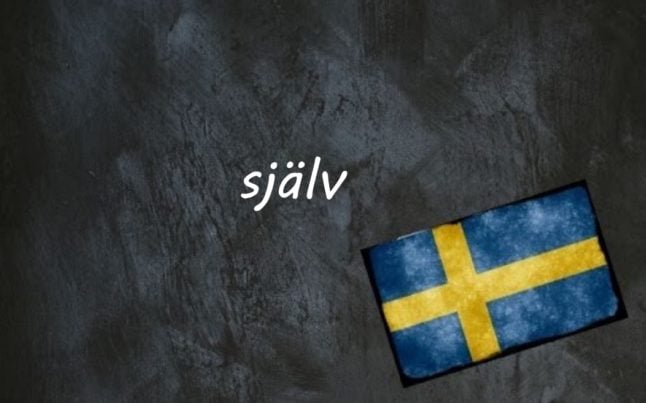Like the other popular Swedish expletives, jävlar and satan, fan literally means “devil” (or “devils” in the case of jävlar).
They are almost interchangeable, all of them are used as a light swearword, somewhere around the level of “damn” or “shit” in English. Most Swedes would in theory object to using them in front of children, although in practice they slip out more often than not.
You could use any of them, for instance, if you hit your thumb with a hammer, left your mobile charger at home, or found a parking ticket slipped beneath your windscreen wiper.
Fan is weaker than the other two, and commonly used for less acute situations – to express mild disappointment or frustration, or even surprise or amazement.
It is often extended to two syllables, with a tone drop between them, like fa-an, or else extended as a long, wailing faaaaaaaaan, and is also often combined with the word vad or va (“what”), as vad fan! or vafaan!
If you’re stuck in a telephone banking queue, and you’re still at number seven after half an hour, you might gently sigh men vafaan, meaning something like “oh, for god’s sake” (or literally, “but what the devil”).
If you’ve misplaced something, such as a hammer, you could say “vem fan tog min hammare?” (“who the hell took my hammer?”).
Fan can take on a plaintive quality, especially when given a nasal tone, when it expresses a sort of exasperation or frustration.
Vafaan! is also commonly used to express surprise, or amazement.
When bumping into an old friend or acquaintance unexpectedly, for instance, you might say “Vafaan! Katarina!”, before hugging them.
If you and a friend are visiting the house of a new acquaintance in the countryside, and as you turn into the drive, you see a billionaire’s mansion complete with helipad, you might gently say “vad fan!“, a little like you would use “wow” or “Jesus” in English.
There is something a little bit old-fashioned and middle-aged about peppering your everyday speech with fan, something celebrated in this collection of clips of the actor Jakob Eklund using it, chiefly in his role as hard-bitten detective Johan Falk.
The collection, incidentally, pretty much covers all the many ways fan can be used, from the gentle and plaintive, to the angry, as well as containing some key phrases, such as the ones below.
Vad fan håller du på med? – “What on earth are you up to?”
Vad fan säger du? – “What the hell are you saying?”
Vad fan har hänt? – “What the hell has happened?”
Eklund’s skill with the word is such that the Swedish YouTube comedian Carl Déman in 2015 had his breakthrough with a banging techno track based around a parody of him saying it.
Enjoy!
Villa, Volvo, Vovve: The Local’s Word Guide to Swedish Life, written by The Local’s journalists, is now available to order. Head to lysforlag.com/vvv to read more about it. It is also possible to buy your copy from Amazon US, Amazon UK, Bokus or Adlibris.



 Please whitelist us to continue reading.
Please whitelist us to continue reading.
amazing, in Italy we have a very similar expression with also pretty similar meaning and usage
vaffan… often used truncated like “vaffa” or “ma vaffa” or “fan…”
in our case, if you want a bit of emphasis you extend the “f”, like “ma vaafffffa…”
[the … meaning a censored part of the word]
😀
I love this, because my Italian husband sometimes says “ma vaffa” which sounds almost identical to me going “men va fa’…” in Swedish. 🙂